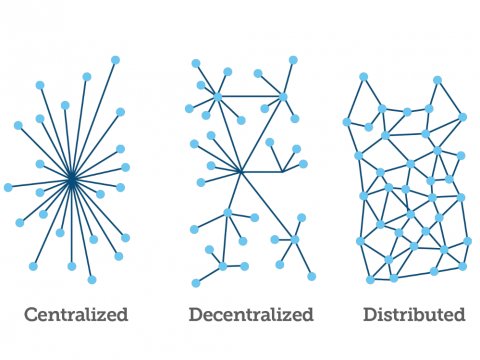Digital Talent Profiles and the Blockchain
I'm still unwinding a bit from last week's HR Tech Conference, and one of the things I like to think about after the event is more of a question I suppose. Namely, 'Where there any trends or new technologies that we should have paid more attention to at the event, and should be featured next time?'
About a two or three weeks before the event, a friend of mine contacted me to inquire if we (the Conference), was going to showcase any Blockchain technology, and how this developing tech can or will be used in HR, Talent, or Recruiting. My short answer was 'no', as I had not really seen or heard much on that front in 2017, no one (that I can recall), specifically pitched me any blockchain powered tools to review, and frankly, I only kind of understand what the whole thing is about myself.
For folks who may have no idea what I am talking about, from our pals at Wikipedia on the Blockchain:
A blockchain is a continuously growing list of records, called blocks, which are linked and secured using cryptography.Each block typically contains a hash pointer as a link to a previous block,a timestamp and transaction data. By design, blockchains are inherently resistant to modification of the data. A blockchain can serve as "an open, distributed ledger that can record transactions between two parties efficiently and in a verifiable and permanent way. For use as a distributed ledger, a blockchain is typically managed by a peer-to-peer network collectively adhering to a protocol for validating new blocks.
This makes blockchains suitable for the recording of events, medical records, and other records management activities, such as identity management,transaction processing, documenting provenance, or food traceability
That doesn't seem too tough to understand, right?
A data repository that is secure, verifiable, can record and store all kinds of data types, and can be widely distributed and shared.
Thinking about it that way, there certainly seems like their would be or could be some applications of this technology in HR and talent technologies.
Before we jump to that, check out this example of how a form of Blockchain is being applied in the Higher Ed space - as a way to electronically distribute and validate student credentials and degrees:
The Massachusetts Institute of Technology is offering some students the option to be awarded tamper-free digital degree certificates when they graduate, in partnership with Learning Machine. Selected students can now choose to download a digital version of their degree certificate to their smartphones when they graduate, in addition to receiving a paper diploma.
Using a free, open-source app called Blockcerts Wallet, students can quickly access a digital diploma that can be shared on social media and verified by employers to ensure its authenticity. The digital credential is protected using block-chain technology. The block chain is a public ledger that offers a secure way of making and recording transactions, and is best known as the underlying technology of digital currency Bitcoin
An interesting application of Blockchain to share and allow the verification of student degrees by employers, banks, and whomever else would need access to a student's degree information.
To jump back to HR/Talent, it makes perfect sense then that a similar Blockchain protected employee talent profile could be created for an individual person that could include not only the degree and academic information like in the MIT example, but also work products, verifiable job histories, certifications and skills assessments, and maybe even things like recommendations and testimonials. And all stored in a secure and distributed way - perhaps a way for a candidate to share their profiles with a number of companies at once without having to go through tedious and repetitive job applications for each one. Or maybe in some kind of talent repository for temp, gig, and contract workers to submit their availability and credentials in talent marketplaces.
There are probably going to be lots more applications of Blockchain in enterprises coming soon, and I will be on the lookout for innovative HR and talent applications for next year's HR Tech.
If you are a provider doing something interesting in this 'Blockchain for HR' space, get in touch, I'd be interested in learning more.
Have a great day!
 Technology tagged
Technology tagged  HR Tech,
HR Tech,  Recruiting,
Recruiting,  Technology,
Technology,  blockchain,
blockchain,  talent
talent  Email Article
Email Article 
 Print Article
Print Article 

